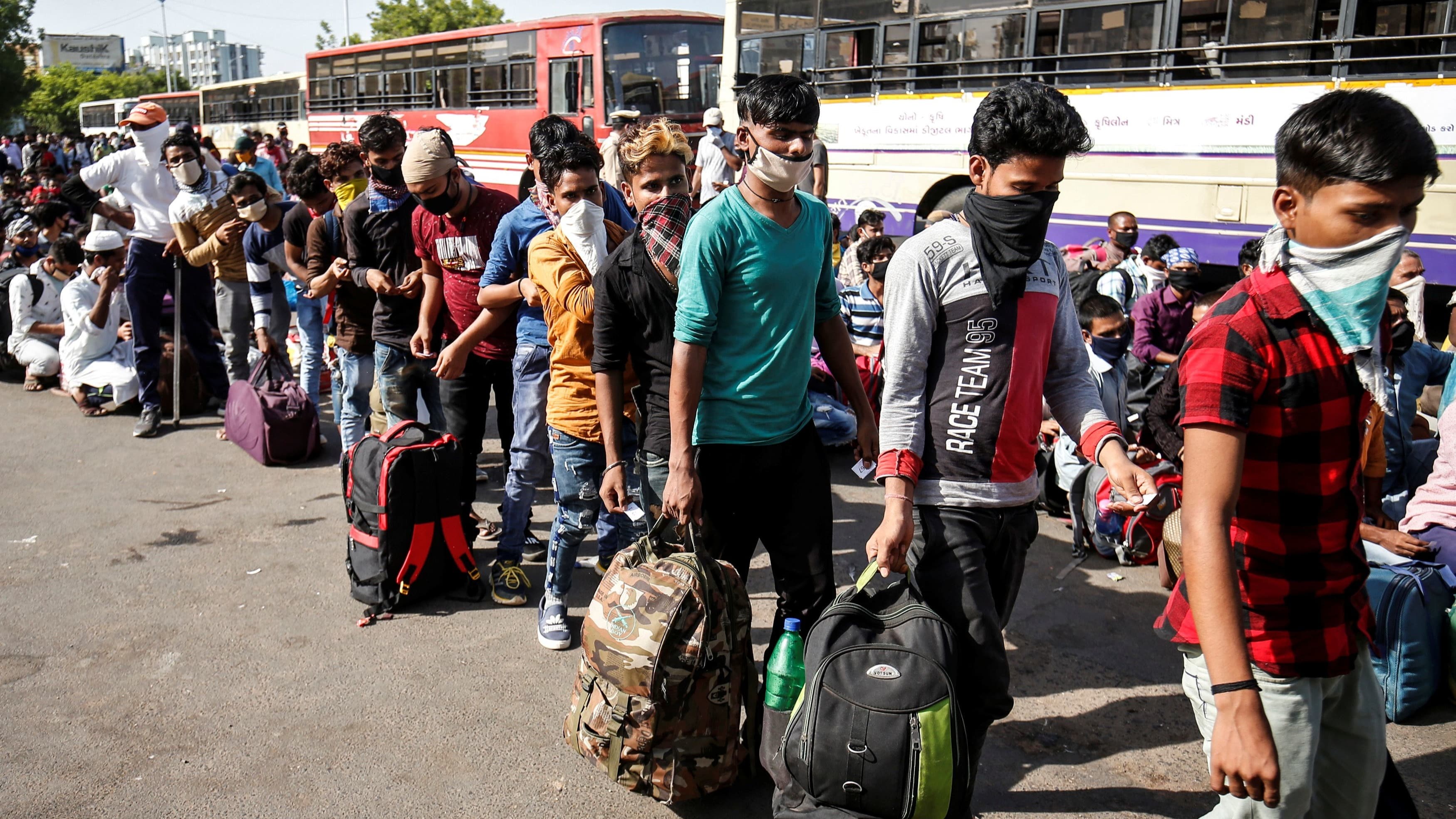Migrant labourers have yet again found themselves packing buses and trains to head back to their villages after surging COVID-19 infections has prompted Delhi and Maharashtra state governments to impose lockdowns.
A year ago, it was the same COVID-19 pandemic and nationwide lockdown which went up to five to six months. There were widespread job losses, uncertainty, empty pockets, hunger and tear-streaked faces. The second wave of the coronavirus pandemic seems to brought another round of deaths and fears.
Prime Minister Narendra Modi, in a nationwide address on Tuesday night, urged state governments to convince labourers not to leave for their home towns while assuring them that they will not be stripped of their livelihood. “If we all follow COVID-19 protocols, there will be no need to impose lockdowns,” the PM said. Despite his assurances, migrant workers are fleeing cities and towns across the country.
Delhi has imposed a week-long lockdown after a record spike in cases overwhelming the city’s healthcare system. Arvind Kejriwal, Delhi Chief Minister, said the city had almost run out of beds at hospital intensive care units (ICUs) and that oxygen was in short supply. “I have always been against lockdowns, but this one will help us amplify the number of hospital beds in Delhi,” he told a virtual press conference on Monday. To the migrant labourers, he said “This was a difficult decision to take but we had no other option left. I know when lockdowns are announced, daily-wage workers suffer and lose their jobs. But I appeal to them not to leave Delhi. It’s a short lockdown and we will take care of you.”
Maharashtra Chief Minister Uddhav Thackeray announced a Rs 5,476 crore relief package on April 14, a day before imposing a strict 15-day curfew in the state. This includes providing 3kg of wheat and 2kg of rice free to seven crore beneficiaries registered under the National Food Security Act, offering two lakh free cooked lunches per day, and paying Rs 1,500 each as a one-time payment to registered construction workers, hawkers and autorickshaw drivers.
Anhad Imaan, a social worker at Aajeevika Bureau, a non-profit that works with migrant labour in three cities – Mumbai, Surat and Ahmedabad, told VoA that the past year has been an unprecedented ordeal in the history of migrant labour. “Work was not easily available or the number of working days each worker managed to get reduced, so earnings dropped. That has been the perpetual issue since COVID-19 hit.”
Also Read: Agility Venture Partners launches consulting service to mentor start-ups
Imaan said migrant labourers face a tough choice with the pandemic’s resurgence. “If they go back, there is nothing in the villages. If they stay, they don’t know what is going to close, for how long and how it will impact their work.”
In 2020, the central government had announced a COVID relief package that involved distributing 5kg of wheat and 1kg of pulses per month to 8 crore migrant workers without ration cards. The three-month scheme was poorly implemented, however, with states distributing just 13% of the grain allocated for migrants by mid-July, and only 2.13 crore out of 8 crore workers actually getting grain during the first three months of the lockdown.
















Pingback: Made in India short-video apps inches closer to TikTok user levels | The Plunge Daily
Pingback: Govt may soon come out with definition of essential supplies by e-tailers | The Plunge Daily